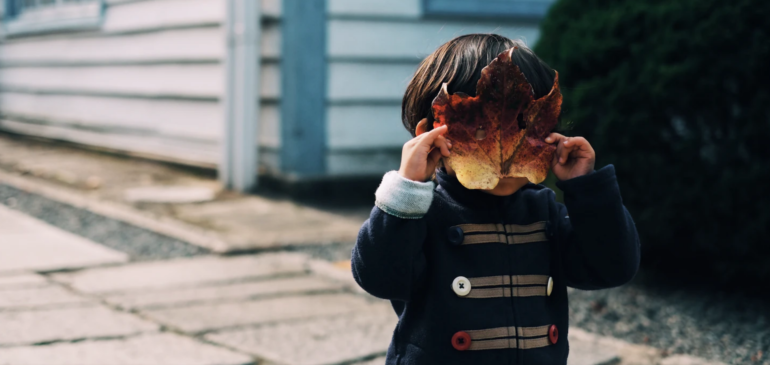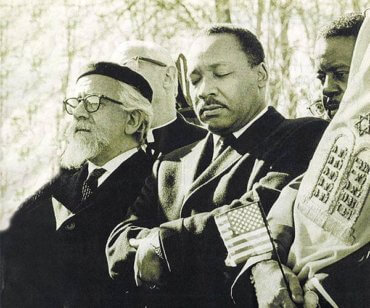
How Is the Orthodox Jewish Community Responding To the Coronavirus?
Hi JITC-
I’m a non-shomer Shabbos Jew. I go to shul a few times a month and keep mostly kosher. I would love to see a post about how shuls are changing their traditions in light of the coronavirus. Especially interesting to me would be kissing the mezuzah, drinking from the Kiddush cup that the rabbi just drank from, kissing the dropped prayer book, and sharing the yad. I’m sure I’m missing a few things, but you get the gist.
Thanks,
“D”
Dear “D”-
Thanks for your question. Before we get into the coronavirus, I’d just like to discourage you from drinking from a cup that others drank from even under normal circumstances. I don’t know if that’s the standard practice in your shul but if it is, I would not participate. The “minor tractate” of Derech Eretz Zuta says that we’re not supposed to share a cup (chapter 6), and this is codified in halacha because the practice is simply unsanitary (OC 170:16).
Okay, on to coronavirus.
COVID-19 has made waves around the world and the Jewish community is no exception. Just a partial list of the impact the virus has made includes:
- Three New York-area schools — SAR Academy, Westchester Day School and Westchester Torah Academy — have temporarily closed;
- Seven Orthodox Jewish schools in Baltimore, including Bais Yaakov, Cheder Chabad, Talmudical Academy, Torah Institute and others, canceled scheduled Purim events;
- More than 1,200 IDF soldiers have been quarantined, most after returning from overseas vacations;
- 80,000 Israelis are under home quarantine and Prime Minister Netanyahu may ask Israeli travelers abroad to self-quarantine;
- A Westchester County synagogue whose rabbi tested positive with coronavirus was ordered closed;
- The Frisch School in Paramus, NJ, closed after it was determined that dozens of students were potentially exposed to the virus at a bas mitzvah;
- Yeshiva University also closed. In a related story, their basketball team, who had been cleared for travel by the state health department, was turned away by their hotel accommodations over virus concerns;
- March of the Living, which brings thousands of participants from more than 20 countries together at the Auschwitz-Birkenau State Museum in Poland, has been postponed indefinitely;
- The Auschwitz Memorial and Museum has asked trip organizers not to bring visitors from countries affected by the virus;
- Nefesh B’Nefesh canceled a “Mega-Aliyah” event scheduled to be held in Teaneck, NJ;
- Birthright Israel trips planned for the remainder of the season have been canceled;
- Passover programs in Italy and Thailand have been canceled; others are keeping careful watch on their reservations.
As noted, this is just a partial list. So how is the Jewish community reacting? Again, just a partial list:
- Hundreds of people gathered at the Kotel to pray for those infected, in both Hebrew and Mandarin;
- The Galilee Research Institute in Israel has been hard at work on a vaccine;
- Several Israeli tech companies have developed the most effective face masks in the world to protect wearers against viruses and bacteria;
- Tzohar Rabbinical Organization is assisting mourners who cannot attend services by reciting kaddish for them;
- The principal of a school in Teaneck has voluntarily chosen to self-quarantine because his wife is the principal of a school where a family tested positive for the virus.
But you had a very specific question, about what’s going on in shuls. That, too, has been the topic of some discussion:
- Rabbi Shaul Robinson of the Lincoln Square Synagogue wrote congregants that he was staying home on Shabbos because of flu-like symptoms, and he urged them to behave likewise;
- Rabbis have advised that congregants under quarantine can use fulfill the obligation to hear the Megillah on Purim via livestream;
- Riverdale Hatzalah EMS urged affected community members not to attend shul for parshas Zachor or Megillah reading, assuring them that alternate arrangements were being made to accommodate the extenuating circumstances;
- Rabbi David Lau, Israel’s Ashkenazi Chief Rabbi, asked Jews to stop kissing – or even touching – mezuzahs. He also ruled that those who are subject to quarantine are not permitted to pray with a minyan;
- The Conference of European Rabbis likewise recommended refraining from kissing mezuzahs, Torah scrolls and other people, as well as to avoid shaking hands.
- Rabbi Dr. Ari Berman, president of Yeshiva University, wrote that “Since older people and those with a compromised immunity or respiratory system are at greater risk, there is no obligation for them to attend shul this Shabbat, and they may not attend if their doctor recommends avoiding crowds.”
The Rabbinical Council of America released a set of guidelines that called exposing others to pathogens a “clear violation of halacha.” After addressing issues like staying home from shul and not kissing the Torah, they go on to discuss a variety halachic details including:
- Hand-washing is equally effective in both hot and cold water (good news for Orthodox Jews, who don’t turn on the hot water on Shabbos);
- Ritual hand-washing with a cup is insufficient for purposes of the coronavirus;
- Liquid soaps and hand-sanitizers are permissible on Shabbos, though gels may be problematic depending on the viscosity.
A number of sources I’ve seen – including the RCA, Hatzalah of the Rockaways and Nassau County, and Rabbi Aaron E. Glatt, MD – have also stressed something that many people have overlooked: not to panic or to overreact. As the aforementioned Hatzalah wrote, “Although this virus is contagious, it is usually not life-threatening in healthy people. It causes symptoms very similar to the flu, including fever, cough, sneezing, body aches, and weakness. It has a greater effect on the elderly and patients with chronic lung disease.”
Similarly, Rabbi Dr. Glatt wrote that “(t)his is a good time to remind everyone that over 30,000,000 people in the US this season have gotten flu, with between 16,000-30,000 deaths, including over 100 children. Flu vaccination is still indicated! By not getting or transmitting flu, you will not only save lives, but you will greatly help doctors who will have less patients to evaluate with unknown respiratory illnesses.”
And let us also consider the calming observation of Hylton I. Lightman, MD, DCH (SA), FAAP: “This, too, shall pass.”
Coronavirus is serious and we definitely want to eradicate it but its mortality rate is low and it’s not typically fatal to otherwise healthy people. With common sense and common courtesy, we can get through this.
But even when things get back to normal, don’t pass a cup around. That’s just nasty.
Sincerely,
Rabbi Jack Abramowitz
Educational Correspondent
Follow Ask Rabbi Jack on YouTube
If you found this content meaningful and want to help further our mission through our Keter, Makom, and Tikun branches, please consider becoming a Change Maker today.







